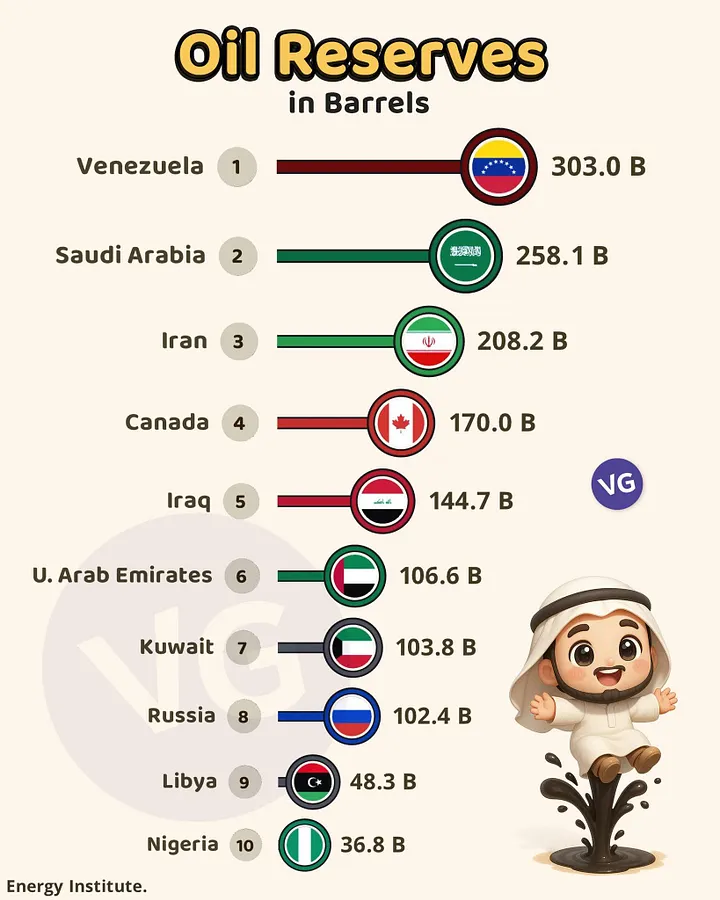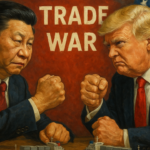By Agbeze Ireke Kalu Onuma, AI-KO
Nigeria presents, in my view, a stark and deeply concerning illustration of the “resource curse” in action. Despite its vast oil wealth, the nation’s profound dependence on this single commodity has paradoxically hindered its development and fostered significant instability. This reliance has effectively shaped Nigeria into a rentier state, where the allure of substantial oil revenues has systematically eroded incentives for diversifying the economy. Why invest substantially in manufacturing, robust agriculture, or burgeoning technology sectors when petrodollars flow, albeit unevenly? This core dynamic underpins many of the nation’s challenges.
Economically, the dominance of oil has inflicted several wounds. The “Dutch Disease” is a prime example: the influx of oil dollars strengthens the national currency, rendering non-oil exports – agricultural produce or potential manufactured goods – uncompetitive on global markets.
And if you are wondering what the Dutch disease is, here’s a breakdown. Picture this: a country suddenly discovers a valuable natural resource—like oil. They start selling it to other countries and make a ton of money. Sounds great, right? Well, here’s the twist.
Because they’re making so much money from this one resource, their currency becomes stronger. With a stronger currency, buying things from other countries (imports) becomes cheaper, but selling local products to other countries (exports) becomes harder. So, local industries like farming or manufacturing can suffer because they can’t compete on the global stage anymore.
This problem—where one booming sector (like oil) hurts the rest of the economy—is what economists call Dutch disease. It was named after what happened in the Netherlands in the 1960s when they found natural gas and other industries started to decline.
So in simple terms, Dutch disease is when a country gets rich from one thing and accidentally makes it harder for other parts of the economy to thrive. Kind of like winning the lottery and forgetting how to manage your budget afterward.
This vicious cycle entrenches oil dependence while actively undermining the potential for a more balanced and resilient economy. Furthermore, the notorious volatility of global oil prices subjects Nigeria to punishing boom-and-bust cycles. As I observe the national budget projections year after year, this volatility makes coherent long-term planning nearly impossible, frequently disrupting vital infrastructure projects and social programs crucial for national development.
Compounding this is the pervasive corruption and mismanagement endemic within the oil sector itself. The misappropriation of vast sums and inefficient allocation of resources directly exacerbate poverty and crippling inequality. Adding insult to injury, Nigeria primarily exports crude oil, missing the significant opportunity to add value through domestic refining and petrochemical industries. This failure drastically limits job creation and forsakes the potential for substantially higher export earnings.
The political ramifications of this oil dependence are equally profound and damaging. Oil revenues have become the lifeblood of a pervasive patronage system. Political elites, in my analysis, wield access to these resources as the primary tool to reward loyalists and cement their hold on power, fundamentally undermining principles of good governance and accountability. The intense competition for control over these lucrative resources has tragically fueled and exacerbated deep-seated ethnic and regional tensions, manifesting in persistent conflict and insecurity, most visibly in the oil-rich Niger Delta. This focus on oil rents has also weakened vital state institutions. With the government less reliant on tax revenues derived from its citizens, the crucial link of accountability is severed.
Citizens, feeling their contributions are insignificant compared to oil wealth, find their leverage diminished, hindering the development of a strong civil society and robust democratic governance. Consequently, other sectors with immense potential, particularly agriculture – capable of employing millions and ensuring food security – suffer from chronic neglect.
Building upon our analysis of Nigeria’s overarching oil dependence, a critical and corrosive manifestation of this curse lies in the very structure of the federation itself – the nature of most Nigerian states. Frankly, the current reality is unsustainable and fundamentally flawed. A significant number of these constituent states produce virtually nothing of tangible economic value. They generate negligible internal revenue and demonstrate little capacity or incentive to develop robust, independent economic bases. Their existence hinges precariously on the monthly ritual of receiving shares from the Federation Account, a pool overwhelmingly filled by oil revenues forcibly sequestered from the oil-producing states, predominantly in the Niger Delta.
This system, in my view, is not merely inefficient; it is morally and economically wrong. It institutionalizes dependency on a single, volatile resource stream extracted from specific regions, while absolving others of the fundamental responsibility of governance: fostering productive local economies. We have created entities that function less as engines of development and more as administrative units waiting for their monthly stipend. This breeds a culture of entitlement and fiscal irresponsibility at the state level, stifling local initiative and innovation. Why strive to build a viable agricultural sector, attract investment, or harness local mineral resources when the federal allocation, derived from oil extracted elsewhere, arrives predictably?
The consequences are dire and visible. This arrangement creates perfect conditions for fiefdoms. With states largely unaccountable to their own citizens for revenue generation, power becomes concentrated in the hands of a small political elite. This elite captures the state apparatus, transforming it into a vehicle for personal enrichment and patronage distribution. Governance becomes less about public service and more about managing the inflow and distribution of oil rents. State resources and contracts become tools for consolidating power and rewarding loyalty, further entrenching corruption and undermining any semblance of meritocracy or broad-based development. The state, in essence, becomes a personal business for the ruling clique.
This systemic failure has blinded us to Nigeria’s vast, untapped potential beyond crude oil. We possess immense arable land, diverse mineral deposits (solid minerals), significant renewable energy potential, and a large, youthful population. Yet, exploration and development in these areas remain tragically under-invested and under-prioritized. Why? Because the easy money from oil, distributed through the flawed federal allocation system, has made us complacent – “drunk, deaf, and blinded,” as you aptly put it. We have neglected the hard work of building diversified, self-sustaining economies at both the national and sub-national levels. We are squandering our future while the oil clock ticks down; it is, after all, a finite resource, and global energy transitions are accelerating.
Therefore, for Nigeria to genuinely progress, a radical restructuring of this fiscal federalism is non-negotiable. We must move beyond tinkering and embrace fundamental reform. The notion of state creation or continued existence must be intrinsically linked to a rigorous, ongoing assessment of economic viability and contribution. Simply put, any state that cannot demonstrate a credible path towards generating a substantial portion of its own revenue and contributing meaningfully to the national economy has no sustainable rationale for existence in its current form. We cannot continue to create or sustain administrative “leeches” that drain resources without generating value. The criteria for statehood must evolve beyond historical claims or political expediency to encompass economic productivity and fiscal responsibility.
This destructive dependence extends far beyond economics and politics. The environmental toll, particularly in the Niger Delta, is a catastrophe I cannot overlook. Decades of oil exploration and production have caused devastating pollution of waterways, decimated biodiversity, and inflicted severe health problems on local communities whose livelihoods are inextricably linked to the land and water. Socially, the promise of oil wealth has proven illusory for the vast majority. Instead of broad-based prosperity, it has intensified glaring inequality. A small elite captures disproportionate benefits, while the majority grapple with persistent poverty, a stark reality visible in the daily struggles of ordinary Nigerians. Ultimately, despite its enormous reserves, Nigeria has struggled to achieve sustained economic growth. Over-reliance on oil has stifled innovation, crippled diversification efforts, and prevented the emergence of a more resilient and dynamic economy. The fierce competition for oil rents inherently fuels political instability, constantly threatening democratic progress and hindering the construction of a genuinely inclusive and equitable society.
Therefore, the path forward demands urgent and decisive action, as the cost of inaction only deepens the existing wounds and makes the inevitable transition more painful. Diversification is not merely an option; it is an existential imperative. Concerted investment must flow into agriculture, manufacturing, and technology to build a broader economic base. Simultaneously, tackling the scourge of corruption and establishing genuine good governance are non-negotiable prerequisites for ensuring that the nation’s resources, both human and natural, finally benefit the entirety of its population. Investing in human capital through education and skills development is crucial to creating a workforce capable of driving this diversified economy. Environmental protection must cease being an afterthought; stringent regulations and holding oil companies accountable for remediation are essential for ecological and human health. Finally, sustainable peace in the Niger Delta requires meaningful engagement with local communities, addressing their legitimate grievances and ensuring they share equitably in the benefits derived from their land.
The graph illustrating global oil reserves is particularly instructive. It shows Nigeria ranked tenth, holding 36.8 billion barrels. Yet, its level of dependence and the resultant socio-economic damage are disproportionate and deeply entrenched. This comparison underscores the unique nature of Nigeria’s challenge: possessing significant reserves, but suffering acutely from the curse they bring. The imperative for change is clear and pressing. The longer decisive action is delayed, the more profound the challenges will become as Nigeria inevitably navigates its transition beyond oil. The time for this crucial awakening, as I see it, is unequivocally now.
The illustration showing Nigeria holding 36.8 billion barrels (ranking 10th), serves as a stark wake-up call in this context. Compared to nations with vastly larger reserves who have managed their economies more prudently, or even those with far less who have diversified successfully, our absolute dependence and the resultant systemic dysfunction leave us, effectively, with “nothing” in terms of sustainable economic foundations or resilient governance structures. Our potential remains buried, while our present is squandered on a model that enriches the few and impoverishes the nation. Scrapping the current, dependency-inducing allocation model and demanding genuine economic productivity from every state unit isn’t just an economic imperative; it is the essential foundation for building a truly united, stable, and prosperous Nigeria. The era of feeding off oil rents extracted under duress from specific regions must end.
Follow us on all social media platforms @dailyquery for news and analyses around the globe.



























